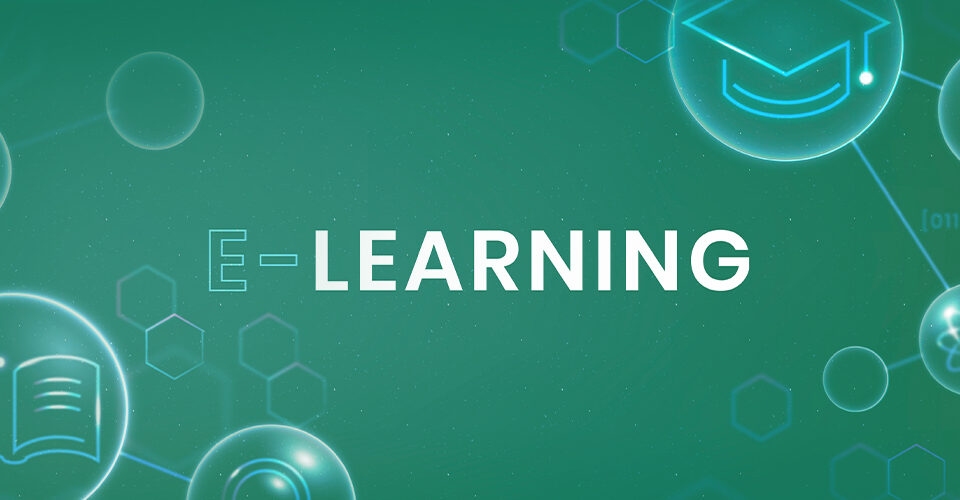
What’s the Future of Learning and Development with AI?
June 25, 2024
The What, Why, and How of eLearning?
May 14, 2024
What’s the Future of Learning and Development with AI?
June 25, 2024
The What, Why, and How of eLearning?
May 14, 2024AI Integration in L&DA Paradigm Shift in Workforce Training
The advent of Artificial Intelligence has ushered in a transformative era for Learning and Development (L&D). As AI rapidly integrates into the L&D landscape, it’s revolutionizing how we enhance employee skills, support knowledge retention, and drive engagement and performance.
Thus, the future of L&D is being reshaped by AI's capabilities, promising unprecedented personalization and efficiency in learning initiatives. This is not just an evolution but a paradigm shift that will redefine workforce development.
How AI is Integrated into Employee Learning and Development
AI's integration into L&D is already making tangible impacts across organizations. Built on the foundation of strategy, technology, and data, here are some of the ways AI is revolutionizing workforce capabilities:
- Personalized Learning
AI analyzes individual learning styles, preferences, and skillsets to deliver customized content. By providing personalized learning content and courses, organizations can elevate the learning experience to unprecedented levels.
For example, AI-powered learning solutions can immediately support queries, enhance accessibility, suggest supplementary resources, craft learning content tailored to individual preferences, and generate personalized feedback without human intervention. - Emotional Intelligence with AI
Focusing solely on business outcomes in training programs overlooks the importance of learner emotions. Research reveals that acknowledging employees at least six times a year boosts performance by 32%.
AI can enhance emotional intelligence in training by analyzing communication to identify emotions, personalizing learning paths, and by creating simulations for social interactions. AI-powered chatbots offer coaching and feedback, while virtual role-playing partners build emotional agility.
Additionally, AI provides on-demand support and guidance, answers question, provides explanations, and offers reference resources, enhancing accessibility and interactivity in learning. Virtual coaches provide personalized feedback and encouragement, motivating and engaging employees in their learning journeys.
However, AI should complement rather than replace human interaction, with careful attention to data privacy and ethical use. - Skill Gap Analysis
Skill gap analysis is crucial for organizations to pinpoint disparities between employees' current skills and the skills needed for their roles. AI and ML (Machine Learning) can enhance this process by analyzing data from various sources like performance metrics and training records.
By using Natural Language Processing (NLP), AI extracts skills from unstructured data like job descriptions, thus enabling a comprehensive skills overview.
ML algorithms predict skill gaps by comparing current skills with future role requirements, thereby facilitating targeted training programs. You can also look at automated assessment tools that can provide objective evaluations, ensuring efficient skill development and proactive workforce planning. - Predictive Analytics for Employee Development
AI-powered predictive analytics identify potential challenges and areas for improvement. It can help in ‘capability building training’ initiatives. By analyzing historical data and patterns, AI can create a framework for talent development and succession planning.
For example, AI can highlight high-potential employees through performance metrics, engagement levels, and learning progress, thereby allowing L&D teams to focus on nurturing future leaders with targeted development opportunities for transitioning employees. - Content Creation and Curation
Generative AI enhances content creation and curation in L&D by automating the development of training materials such as quizzes and course modules, thus freeing up human instructors to focus on mentoring and coaching.
AI-driven recommendation engines can also analyze learner behavior, preferences, and performance to suggest relevant articles, videos, and courses, ensuring employees access the most pertinent and engaging resources. - Intelligent Assessment and Feedback
AI automates assessment grading and provides immediate, detailed feedback that helps employees identify strengths and areas for improvement. AI-driven analytics offer insights into individual and group performance that allows L&D professionals to refine training programs. For example, NLP algorithms assess written assignments, providing consistent and objective feedback on grammar, structure, and content quality, thus accelerating the grading process. By integrating AI-powered learning tools, employees and L&D departments can optimize performance, thus ensuring that organizations achieve their missions, objectives, and ROI.
Ready to Transform Your Business with AI?
Interested in the potential of AI for learning and development? Stay tuned for our upcoming blog on The Future of L&D with AI.
Please contact Ozemio today for a seamless AI implementation tailored to your every business need.
Naveen is a seasoned Learning and Development professional with 19 years of experience in training delivery, L&D operations, project management, and learning consultancy. He excels in managing projects, optimizing operations, and leading cross-functional teams. He is adept at conducting needs assessments, developing solutions, and enhancing workforce performance. He is passionate about fostering continuous learning, employee growth and driving organizational success through strategic learning initiatives.




